Dr. Munkir Hossain: a Stellar Scientist’s Journey Through Sufi Path to Philanthropic Innovation
Bhimpur, a small village in the Birbhum district of West Bengal, has been the cradle of numerous prominent figures, including influential politicians. Among the remarkable personalities that emerged from Bhimpur in the 20th century, Dr. Munkir Hossain (20 September 1954- 5 February 2025), an laureate of Maulana Abdul Kalam Azad award from West Bengal Department of Minorities and Madrasah Education and Furfura Shareef Dada Huzoor (R.H) Ratna award for his contributions to the development of Muslim education in Bengal. Was a renowned Sufi mystic, scientist, philosopher, and social reformer, his contributions to society, especially in the field of education, who dedicated his life to advancing education among the underprivileged communities of the region. Despite his impressive academic achievements and considerable wealth, Dr. Hossain chose a life of humble simplicity. A PhD holder in one of the most challenging branches of chemistry, he was not steeped in traditional Islamic scholarship; yet his piety was unwavering. Whether traveling by foot or by vehicle, he never missed a salah (prayer), and he observed fasts year-round until his deathbed. Dr. Hossain’s legacy is measured not only by his personal virtues but also by the transformative impact he had on society—particularly within the local Muslim community. His progressive ideas and practices became a turning point in redefining the destiny of Bengali Muslims, inspiring social change that endures to this day. This article aims to shed light on the life, growth, and service of Dr. Munkir Hossain, celebrating his profound contributions and the enduring influence of his visionary spirit.
Early Childhood
Dr. Munkir Hossain was born on 20 September of 1954 in a small village called Khutkail, in a poor family of Fayaz Hossain- his father and Rijiya Bibi - his mother. His father was a farmer and labour while mother was a housewife. For the cause of financial instability he was transferred to the house of his maternal ancestor in Bhimpur. As Unais PK wrote: “After his birth he was nurtured by his grandmother and grandfather, because his mother Rijiya Bibi and his father Fayez Sk both were living a poor life when Munkir Hossain was born”. While Nasreen Khan points out, a part of her interview with Munkir Hossain “I was born in Khutkail village but there was no school there. Luckily my brother was born soon after my birth so my parents left me at my maternal grandparents’ house in Bhimpur which is just across the Pagla river. There was a primary school too. If that had not happened I would have remained illiterate”. Afterward, his grandmother Saheba Bibi and his grandfather Majed Sk took care of him since he was only one and half years old.
Despite the challenges of poverty and financial instability, his primary education began early when he was just four years old through his admission in a nursery school. Along with study he was used to graze goats and cows with his peers. Despite everything, his heart held onto hope, and his mind was consumed by the ambition of becoming a great scholar. However, a single obstacle repeatedly tormented him on the path to success- the poverty and lack of funds. Dr. Munkir Hussain grew up in Bhimpur. Although of humble origin, he climbed the ladder of success, one after the other in a steady fashion. After obtaining his PhD in Chemistry, he travelled overseas to quench his love for further research. He worked in Japan and Taiwan for more than a decade before finally returning to his hometown.
Educational Life
At the tender age of six, he set out on his educational journey in 1960. Enrolled in Bhimpur Primary School, he built a solid foundation that sparked a lifelong thirst for knowledge. As he wrapped up his primary education, he switched over to Nayagram Y.M. Junior High School in 1966, where he set his sights on pursuing science. Four years later, in 1970, he moved on to Paikar High School—a turning point in his life. It was here that he hit it off with Abdur Rajjak, a classmate who soon became his rock, always ready to lend a helping hand, especially when it came to his education. While completing the 9th and 10th (Madhyamik) examinations, his dream began to take shape when he and Rajjak opted for the science stream in higher secondary education. Then he successfully passed higher secondary (Uccha Madhyamik) in 1973 from the same school.
At that time, as Bangladesh was liberated from Pakistan, the state faced numerous challenges, including a lack of higher educational institutions and inadequate transportation. Despite the difficulties, nothing could stand in his way. With no college nearby in Bhimpur, he enrolled in a B.Sc. in Chemistry at Hetampur Krishna Chandra College in 1973. Reflecting on those days, he once recalled, “Continuing my studies in Hetampur was difficult because of the distance. Every day, I had to walk 10 kilometers just to catch the only available bus to college. After classes, I repeated the same journey—walking another 10 kilometers home after getting off the bus. Often, I would reach home at 7 or 8 at night.” However, he successfully completed his bachelor's and master’s degree in 1979 at the same institution. While completing his master’s degree, he secured a teaching position at Kabi Nazrul in Murarai. However, his insatiable thirst for knowledge pulled him back into academics, compelling him to leave the job and return to his studies.
In 1980, he jumped on the next step of his academic life by joining Bardhaman University as a PhD scholar in Chemistry. Over the next five years, he devoted himself to deep research, ultimately earning his doctorate in 1986 with his thesis titled "Studies on Chelate Complexes of Hydrogen Schiff Bases" in Organometallics. Throughout this rigorous academic pursuit, he found an unwavering mentor in R. L. Dutta, who guided and supported him every step of the way.
However, beyond intellectual challenges, financial constraints often threatened to derail his dreams. It was Dr. Motahar Hossain, a distinguished politician from Bhimpur who later served as both the Home and Finance Minister of West Bengal, stepped in as his pillar of support. Dr. Motahar Hossain financially helped him to continue his education. With sheer determination, and the unwavering support of his mentors and well-wishers, he completed his PhD. From a small village boy with limited resources to a scholar with a doctorate, his educational life stood as a testament to his perseverance and the power of relentless ambition.
Research and Career
In January 1986, he once again returned into the world of teaching, joining Sujapur High Madrasah in Malda as a teacher. However, after only five months in the classroom, a new door opened for him—an opportunity to research at CSIR (Council of Scientific and Industrial Research), once again under the mentorship of R. L. Dutta. The first two years of this research took place at Bardhaman University, after which he transferred to IIT Bombay, where he continued his work under the esteemed guidance of Pradeep Mathur for the next three years. This marked the beginning of a research career at both national and international levels. As his contributions in the field of chemistry gained recognition, new opportunities came knocking. After years of dedicated research, he secured an offer from Hsinchu, Taiwan. In 1996, his international research journey began at National Tsing Hua University (NTHU), as a Postdoctoral Research Associate in Chemical Synthesis from November 1996 to March 1997. His time in Taiwan culminated in him being awarded the prestigious Japan Society for the Promotion of Science (JSPS) Research Fellowship, further solidifying his place in the global scientific community.
In early 1997, he joined Osaka University, in Japan, as a Postdoctoral Research Associate, spending two years conducting impactful research in chemistry, focusing on soil and agriculture. In 1999, he returned to Taiwan, this time joining Academia Sinaca, Institute of Chemistry, which became his primary research base for over a decade. From 1999 to 2016, he worked as a Research Associate then as a Researcher, specializing in C-H bond activation, copper catalysis, and material chemistry.
The results of his long-term research and work are reflected in his publication portfolio, featuring over 55 research papers in some of the world’s most prestigious scientific journals. Despite working in a mostly non-Muslim environment and collaborating with colleagues from diverse backgrounds, he never missed any salah (prayer), even at work. He would always step away from his tasks at prayer time, often prompting his colleagues to chime in with, “Munkir, go and pray—it’s time!” In essence, his life stands as a powerful testament that faith and reason can go hand in hand—a lesson every Muslim can draw inspiration from.
Contribution to the Society
The West Bengal Government’s education portal, Banglar Shiksha, proudly shows Dr. Munkir Hossain in the alumni section of Bhimpur Junior Basic School. Once a small student, he has risen to prominence as a renowned scientist working in Japan. He has also been a forerunner in philanthropic education. Through his trust, "As Sakeenah," Dr. Munkir set the chain of charity, and donated land to a school called ‘Al Hamra’.
From the funds of his fellowships and research, he bought additional land for charity and generously donated plots for mosques, madrasas, and graveyards. Although his dream of founding an Islamic university always tugged at his heart, it was his connection with Darul Huda Islamic University in Chemmad, Malappuram, Kerala, that truly set the stage for its realization.
In 2010, after returning from Taiwan, he visited Darul Huda with Sabir Gaffar and Shahenshah Jahangir, then-president of IUML in Kolkata. There, he met with Vice Chancellor Bahauddin Nadvi, General Secretary Shafi Haji, and other key figures of the university’s central committee. He urged them to establish a campus in his home village and promised to donate as much land as needed.
Recognizing the potential to uplift the backward Muslim community in Bengal, Sayyid Sadiq Ali Shihab Thangal, Chancellor of Darul Huda and IUML Chairman, championed the idea of building an off-campus extension. By 2011, Darul Huda had started its Maktab (primary school) service in Bhimpur, and by 2012, an off-campus was established on the 63 acres of land donated by Dr. Munkir Hossain. This blessed institution now stands as a spiritual learning lighthouse for the community. His vision further blossomed when, in 2019, the Darul Huda Bengal Campus inaugurated a day-cum-boarding school for girls, with a residential building expanding on 52000 square feet soon to be completed—fulfilling his longstanding commitment to women’s education.
Till the death, he remained unmarried, Dr. Munkir Hossain’s journey further exemplifies how faith and science can walk hand in hand. His contributions continue to serve as a beacon, inspiring future generations to pursue knowledge while staying true to their cultural and religious values.
Conclusion
In conclusion, Sir Dr. Mohammed Munkir Hossain Saheb (20 September 1954 – 5 February 2025) was a distinguished Sufi scientist and educationalist from Bhimpur, Birbhum, West Bengal. Born into a humble farming family, he overcame economic hardships to forge a remarkable career in chemistry, conducting extensive research in India, Japan, and Taiwan. Beyond his scientific achievements, he played a pivotal role in establishing the Bengal off-campus branch of Darul Huda Islamic University, thereby opening new avenues for Bengali Muslims. His contributions also extended to social, religious, and literary endeavors, making him a living embodiment of deep values, vision, and practicality. He performed Hajj (pilgrimage of the Ka’bah) in 2023. Finally, this fountain of wisdom, knowledge and guidance departed this world on February 5, 2025, leaving behind an unparalleled legacy of sincerity, service, and sacrifice. Today, our community need his spirit, his enduring spirit has the power to transform society, guiding us toward a brighter future. Let us honor his legacy not merely as a chapter of history, but as a vibrant spirit that continues to inspire us today.
About the Author: He is a research student at Darul Huda Islamic University, West Bengal Campus. Interested in History, Current Muslim World, Islamic theology, Current Affairs and Islamic History.
References
Khan, N. (22, July 2020). Dr Munkir Hossain: The unacknowledged Good Samaritan and ‘Sufi Scientist’ of rural India. eNewsroom. https://enewsroom.in/scientist-farmer-dr-munkir-hossain-bengal/
Unais, P. K. (n.d.). Dr. Munkir Hossain: Life and mission of a Sufi scientist. Academia.edu. Retrieved February 17, 2025, from https://www.academia.edu/98027072/Dr_Munkir_Hossain_Life_and_Mission_of_a_Sufi_Scientist
Jaihoon, M. (2017, September 17). Birbhum abloom: Exploring the spiritual legacy of India’s Marxist cousins. Café Dissensus. https://cafedissensusblog.com/2017/09/17/birbhum-abloom-exploring-the-spiritual-legacy-of-indias-marxist-cousins/
Disclaimer
The views expressed in this article are the author’s own and do not necessarily mirror Islamonweb’s editorial stance.

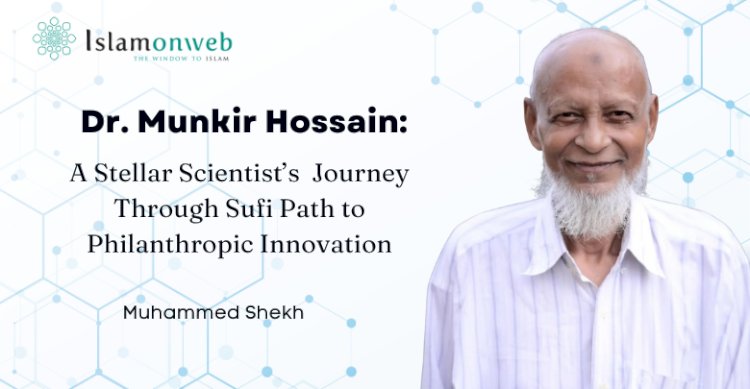



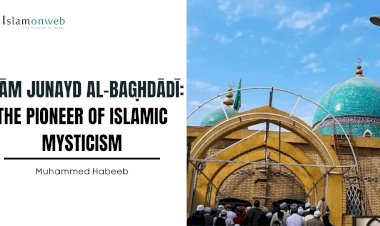
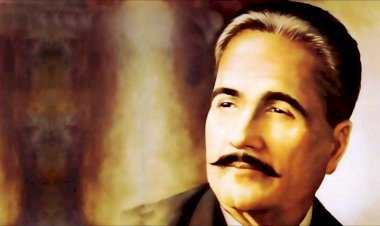
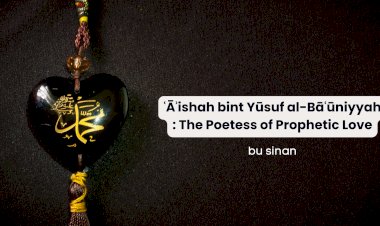
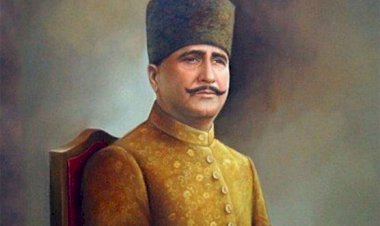
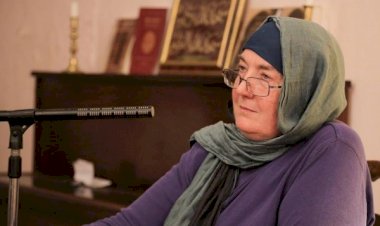
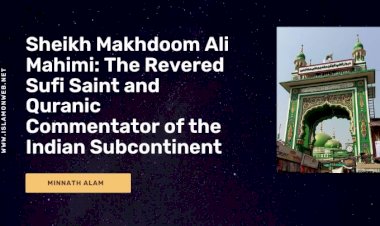














Leave A Comment